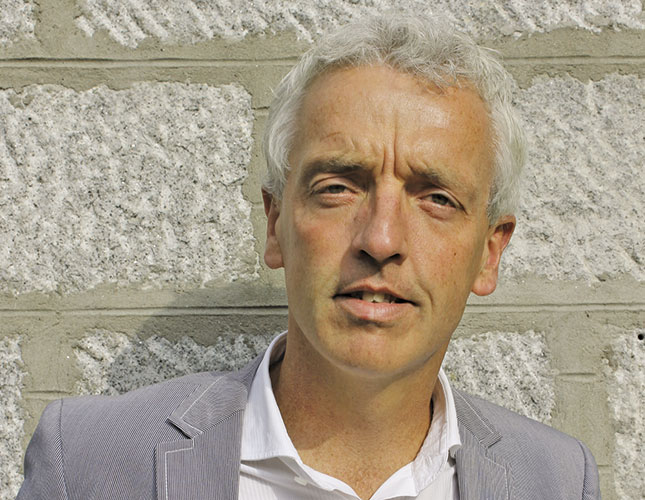
Photo: Anneli Groenewald
When and why was Agriterra founded?
It was founded by Dutch farmer organisations and co-operatives in 1997, with the aim of supporting peers in developing countries. In those days, agriculture was not on the international agenda. When it did make it onto the agenda, it was mainly through NGOs. There was little opportunity for farmers to be involved or become part of any debate on agriculture.
What assistance or services do Agriterra provide?
We provide co-operatives with business development services in the form of advisory services, training and peer exchange. The three main areas we look at are improving governance, financial management, and business planning and development.
We work with any farm-related co-operatives, from marketing-related to input-related operations.
What differentiates you from other consulting firms?
We are unique because we have a peer-to-peer focus. This is very important and relevant. While the context in which farmers operate might be completely different, a farmer from Kenya understands a farmer from South Africa or the Netherlands on a professional level.
READ: How to set up a co-op
So we identify experts, employees and members of Dutch farmer co-operatives to interact and share knowledge with their peers in developing markets. We also have networks in Belgium, Germany, Spain and France, and sometimes use members from co-ops in those countries to work on specific projects abroad. We also partner with skilled people in developing markets.
What is your main focus area?
It’s assisting farmer organisations in developing countries to improve their organisations and strengthen their businesses, thereby enabling them to voice their constituencies’ concerns and represent their interests. The co-operatives we work with all have an ambition to grow. For example, they may already be operating a dairy and want to expand their facilities, but have difficulty accessing financing.
This is often due to a lack of management skill or insufficient knowledge of compiling business plans – this is where we can help. In most countries where we work, there’s an increasing interest in agriculture, but the risk profile of co-operatives is very high. In essence, we assist in lowering this risk profile. Our slogan is “Making co-operatives bankable”.
What do you charge for your services?
Agriterra is a non-profit, peer-to-peer advisory firm. We have a lot of knowledge and expertise in the Netherlands, that have been built up over time. We take this knowledge to co-operatives free of charge, but expect them to be ready and willing to change and become competitive in their markets.
Who finances your operations?
We have an annual budget of about 15 million euros, and our main donor is the Dutch government.
Where does Agriterra operate?
We’re based in Arnhem in the Netherlands, but currently operate in more than 30 countries. Our biggest client base is in sub-Saharan Africa, with about 70% of our budget going to services delivered in that region. We have four regional offices in East Africa. We also operate in Latin America and South East Asia, and have regional offices in Peru and Indonesia.
How does a co-operative qualify for your services?
In principle, the co-operative must have a minimum of 1 000 members, but there are always exceptions to the rule. They should also have an existing track record and the ambition to grow.
How long do you remain involved in a project?
Three to four years, on average. We usually start with an assessment of the co-operative, after which we draw up annual action plans. In the first year, we normally focus on the basic issues related to financial management and governance. In the second year, we develop a business plan and assist in accessing finance. During the third and fourth years we implement the plans and do follow-ups.
READ: Wupperthal rooibos farmers co-operate for a better future
How do you identify potential co-operatives?
Initially, we had to build up a network and source potential clients. But increasingly, co-operatives find us through banks and multinationals that are aware of our services and refer them to us.
How many projects have you worked on?
Currently, we have 55 clients in six countries. Since 1997, we’ve helped 24 co-operatives to access financing.
What is your success rate?
We work on a success
rate of about 30%. We’ve found that only one in three or four co-operatives survive. That’s why it’s crucial to first carry out a thorough company assessment before we start a project.
Are you involved in any projects in South Africa?
At the moment, we’re not working in South Africa, but we’d be quite interested in starting work in the country, as it could potentially become a hub for us in Southern Africa. It all depends on whether there’s a demand for the services we provide.
What is the procedure that co-operatives should follow to apply for assistance?
Co-operatives need to contact us and provide basic information about their operations. We usually ask for basic documents such as the organisation’s constitution. But it all starts with an email.
Email Cees van Rij at [email protected].
This article was originally published in the 26 September 2014 issue of Farmer’s Weekly.












